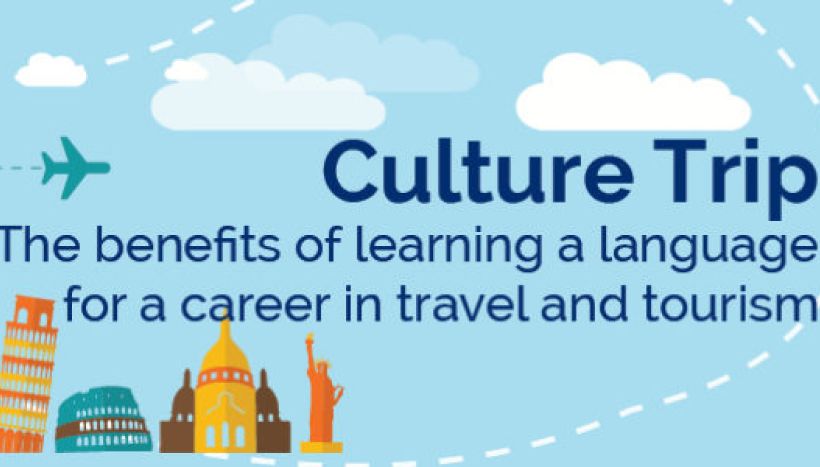Benefits of Learning a Language for a Travel and Tourism Career
26 April 2019

For those looking towards a career in travel and tourism, speaking two or more languages can be the catalyst to becoming an international success. Whether you want to be a tour guide or work for a tourist board, knowing another language could give you a head start in the industry. According to a recent report by the BBC, the number of students taking a language at GSCE level has dropped to around 30 per cent since 2013. Sharing his experience from a long career in travel and tourism, both living and working abroad, Peter Jenkins, of Sun-hat Villas & Resorts, looks at the benefits of being multi-lingual.
The industry
Tourism supports millions of jobs around the world, from travel agents and holiday reps to consultants who work for, or run their own, tour companies. While you can secure many roles with GSCEs, it can be helpful – not to mention exciting – to speak the language of the country where you are based.
If you’re working abroad, even for a short time, learning the local language can open up so many new opportunities. As well as helping you feel at home in your new community, it allows you to speak to the locals and shows that you respect their culture.
Mark of respect
One way to show respect to people abroad is to try to speak their language. While you may not get every word right, and perhaps stumble when perfecting the pronunciations, locals will appreciate the effort you put in. Learning key phrases and greetings are great for short stays, but if you’re working abroad or have clients overseas, then it is important to learn as much as you can to truly be a part of the community.
Every culture is different, and while a simple word or gesture may mean nothing to us, it could be offensive elsewhere. This is where online translation tools fall down because they are generated automatically and are not structured the way people actually speak. The best way to grasp how the locals speak is to rub shoulders with them; venture out to food markets and listen to the locals bartering, hit the shops during your spare time and visit networking events where you can mingle with local businesses.
Taste the culture
One of the best things about working abroad is absorbing the local culture, and there’s no better way to do that than by sampling the cuisine. Some say the best way to learn a language is to sit at a restaurant and try to place an order. It may seem simple – especially in France or Spain as many food terms will be recognisable – but the back and forth with your server will help with general pronunciation.
Menus also often repeat connecting words like ‘with’, ‘on’, ‘in’ which can help you grasp the structure of sentences and really help you in your day-to-day conversations. You’ll find it helps you to strike a conversation up with a colleague or client, benefiting you in the long run.
You may have heard about the two-tiered pricing system for locals and tourists in markets and cafés. One way to really practice your language skills is to have a go at haggling and see if you can grab a bargain – your experience with lively food markets will help you here, too.
The wider community
If your dream is to work abroad, then understanding the language is a must. Not only will it be easier to introduce yourself to new neighbours and shop owners, but it will also help when it comes to finding a place to rent, opening a bank account and paying your bills.
Learning one language often opens you up to more countries than you think. While it may not be the primary language, it could be the secondary, or it may even have words that sound very similar. Malaysian, for example, is recognised in Indonesia, and vice-versa, while Spanish is spoken around the world, from Latin America to the Philippines.
If you’re going into the travel and tourism industry, learning a language will really help you stand out from the competition and get the most out of your career. Rather than relying on translation apps, a course enables you to get to grips with common inflexions, pronunciations and culture.